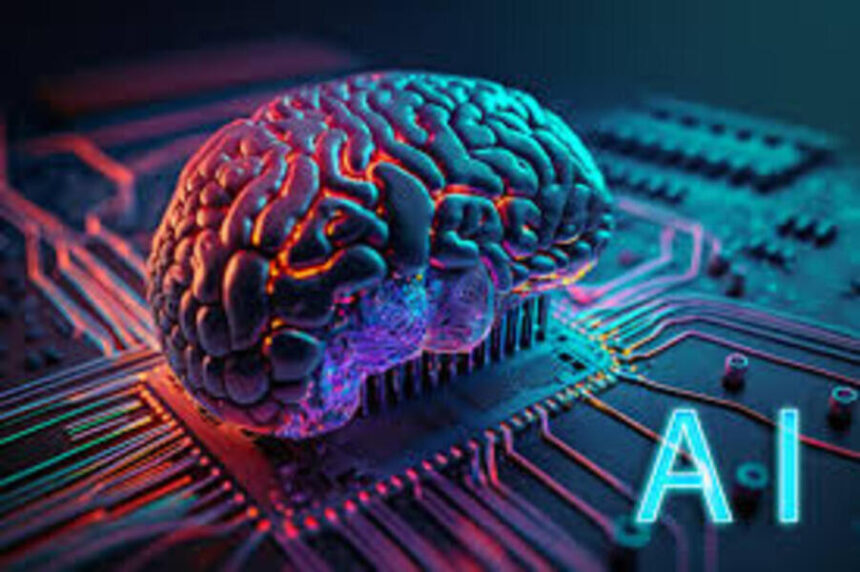Artificial Intelligence (AI) is reshaping industries and societies at a rapid pace. From powering the devices we use daily to transforming complex fields like healthcare and transportation, AI is becoming an integral part of our lives. In this article, we’ll dive into the depths of Artificial Intelligence, its history, how it works, real-world applications, ethical considerations, and its promising future.
Understanding Artificial Intelligence
Artificial Intelligence (AI) refers to the simulation of human intelligence in machines that are programmed to think, learn, and solve problems like humans. It’s a technology that’s capable of mimicking cognitive functions such as learning, reasoning, and problem-solving.
Definition of AI
At its core, AI is the ability of a machine to perform tasks typically requiring human intelligence, such as visual perception, speech recognition, decision-making, and language translation. The term “Artificial Intelligence” was first coined by John McCarthy in 1956, who defined it as “the science and engineering of making intelligent machines.”
Historical Background of AI
The concept of Artificial Intelligence dates back to ancient times, with myths of mechanical men. However, AI as a scientific field started in the mid-20th century. Early milestones include Alan Turing’s famous “Turing Test,” which proposed a criterion to determine whether a machine can exhibit intelligent behavior equivalent to that of a human. Over the years, AI has evolved through different phases, such as symbolic AI, rule-based systems, and machine learning-driven AI.
Different Types of AI
AI is classified into three types:
- Narrow AI (Weak AI): Designed for specific tasks like voice recognition or image classification. This is the most common type today.
- General AI (Strong AI): A theoretical form of AI that can perform any intellectual task a human can.
- Super AI: An AI that surpasses human intelligence and can outperform humans in all aspects.
How Artificial Intelligence Works
Understanding the functioning of AI requires breaking down its core components and techniques, which include machine learning, neural networks, and data processing.
Machine Learning and AI
Machine learning (ML) is a subset of AI that allows machines to learn from data without being explicitly programmed. ML algorithms build models based on data inputs and use them to make predictions or decisions. This learning process is iterative, improving over time as more data becomes available.
Neural Networks and Deep Learning
Neural networks are the backbone of deep learning, a more advanced subset of machine learning. Modeled after the human brain, neural networks consist of layers of nodes, or “neurons,” that process data inputs and pass them through various stages to extract patterns and insights. Deep learning, with its multi-layered neural networks, is responsible for advancements in image recognition, language translation, and even autonomous vehicles.
Data Processing in AI Systems
AI relies heavily on vast amounts of data to learn and improve. Data is processed in several stages: from raw data collection to data cleaning, followed by feature extraction, model training, and finally, deployment. The quality and quantity of data significantly influence AI’s accuracy and effectiveness.
Real-World Applications of AI
Artificial Intelligence is not just a concept but a reality shaping various industries.
AI in Healthcare
AI’s ability to analyze large datasets makes it a powerful tool in healthcare. From diagnosing diseases to personalized treatment plans, AI is transforming medical care. AI algorithms can process medical images faster and more accurately than human doctors, leading to quicker diagnoses and treatments.
AI in Transportation
Self-driving cars, powered by AI, are no longer a distant dream. AI systems process data from sensors, cameras, and GPS to navigate roads safely. Autonomous vehicles are expected to reduce accidents caused by human error, making roads safer for everyone.
AI in Entertainment and Media
AI is revolutionizing the entertainment industry, from generating music and films to personalizing content recommendations. Streaming services like Netflix and Spotify use AI algorithms to suggest movies, shows, and music based on user preferences, enhancing the overall experience.
AI in Customer Service and Marketing
AI-driven chatbots and virtual assistants are improving customer service by providing 24/7 support. In marketing, AI helps in analyzing consumer behavior, automating ad campaigns, and personalizing content to increase engagement.
Ethical Concerns and AI
While AI brings numerous benefits, it also raises ethical questions.
Privacy and Surveillance
AI systems collect vast amounts of data, raising concerns about privacy. With increased surveillance capabilities, there’s a risk of misuse by governments and corporations, potentially infringing on individuals’ privacy rights.
Job Displacement and Automation
Automation powered by AI is threatening many jobs, especially in industries like manufacturing, retail, and transportation. While AI creates new opportunities, there’s an ongoing debate on how to manage the transition to an AI-driven economy.
Bias in AI Algorithms
AI systems can unintentionally perpetuate biases present in the data they’re trained on. Biased algorithms can lead to unfair outcomes in areas like hiring, law enforcement, and lending, which highlights the need for transparency and fairness in AI development.
The Future of Artificial Intelligence
AI’s future holds immense potential, promising innovations that could transform human life.
AI and Its Role in Scientific Research
AI is accelerating scientific discoveries by analyzing massive datasets and identifying patterns that humans might overlook. From drug discovery to climate modeling, AI is becoming a valuable tool in research fields.
AI in Everyday Life: What to Expect
AI will soon become more integrated into everyday life, from smart home assistants that anticipate our needs to AI-driven education platforms that personalize learning experiences for students.
The Potential of AI to Solve Global Problems
AI can play a significant role in solving global challenges, such as climate change, hunger, and healthcare inequality. AI-powered tools can help predict natural disasters, optimize resource distribution, and provide personalized healthcare to underserved communities.
Frequently Asked Questions (FAQs)
- What is Artificial Intelligence? Artificial Intelligence (AI) refers to machines’ ability to mimic human intelligence and perform tasks like learning, reasoning, and problem-solving.
- How does AI impact the job market? AI is automating many jobs but also creating new opportunities in AI development, maintenance, and ethical management.
- What are the ethical concerns related to AI? Key concerns include privacy, job displacement, and biases in AI algorithms.
- Can AI be dangerous? If not properly regulated, AI could pose risks such as biased decision-making, surveillance, and even autonomous weaponry.
- How is AI used in healthcare? AI helps in diagnosing diseases, developing treatment plans, and processing medical data faster and more accurately than human professionals.
- What is the future of AI? AI will continue to integrate into daily life, offering solutions to global problems and transforming industries like healthcare, education, and transportation.


